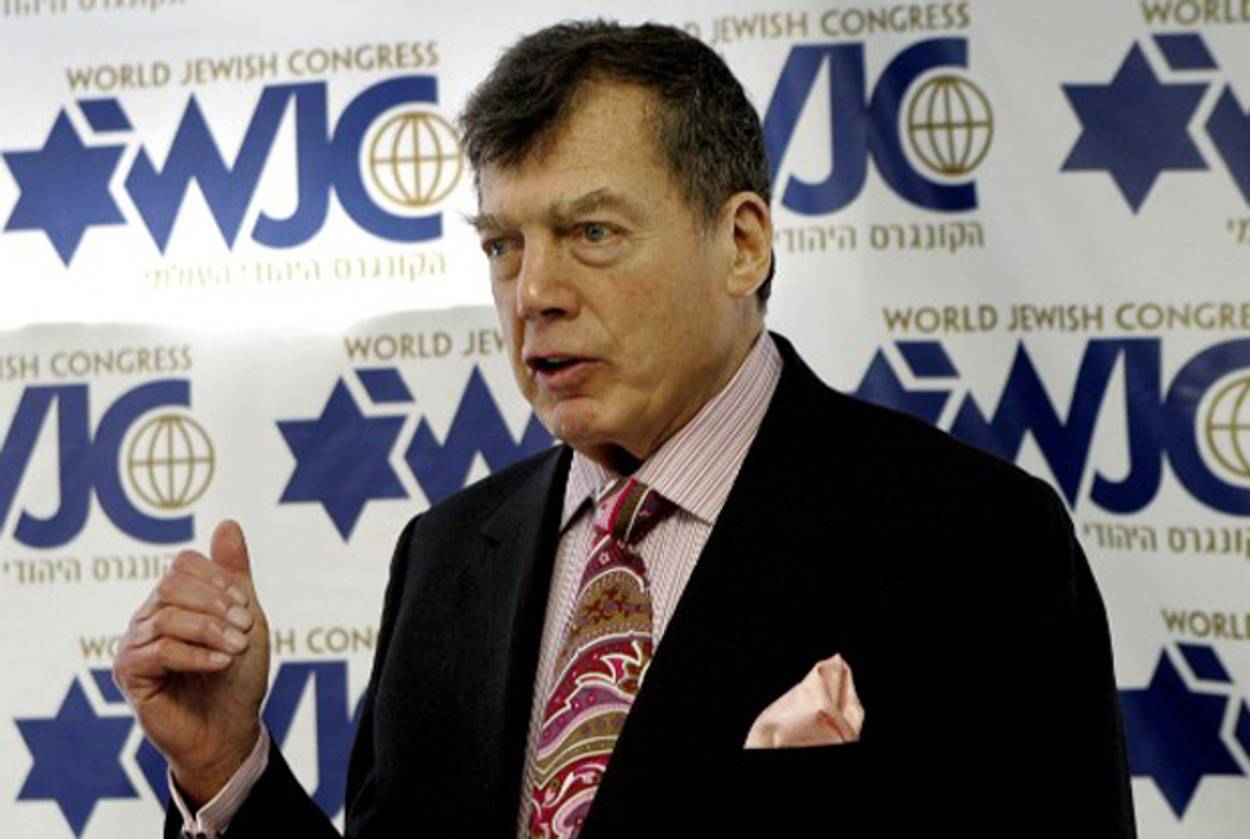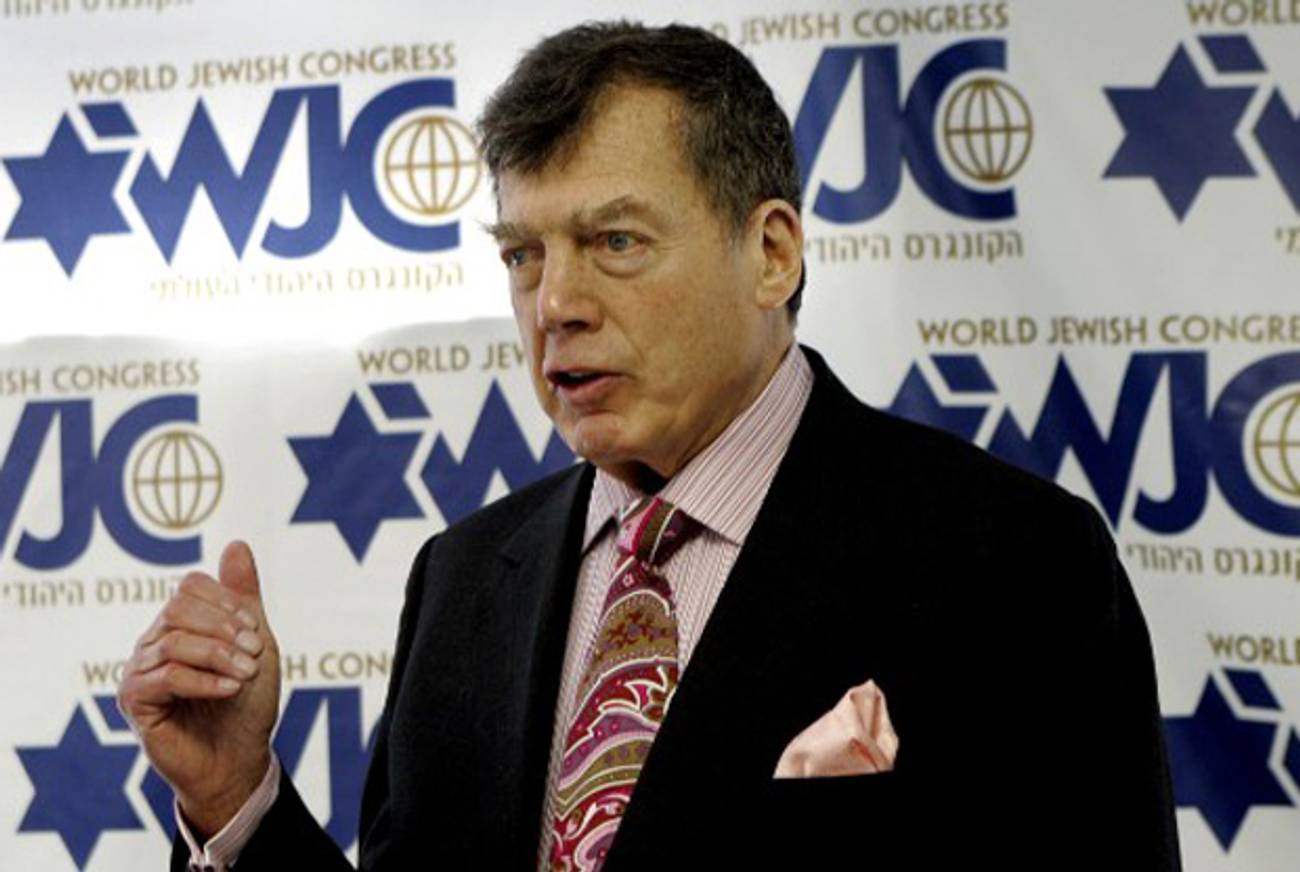Remembering Edgar M. Bronfman, Sr.
What one young writer learned from the late businessman and philanthropist




“Call me Edgar,” Edgar M. Bronfman, Sr. said the first time I met him a few years ago. I was a 27-year-old writer living hand to mouth in Brooklyn; he was an 80-year-old billionaire, a titan of industry, and a legend in the Jewish communal world. Edgar died Dec. 21 at 84, surrounded by family at his home in Manhattan. There are others who knew him longer, and better. But during 2009 and 2010, I spent many afternoons with Edgar, helping him research a future book project and assisting him in the writing of several articles and op-eds.
I knew him intimately but fleetingly. I understood from the outset how lucky I was to have landed the project, yet I never got over the sheer oddity of spending time in his presence. Beginning with that first handshake and his casual introduction—“Call me Edgar”—I knew there was something special about my new employer.
Whenever friends asked me what he was like, my answer was always the same: “His instincts are just really good.” It was a compliment, of course, but it was also something I was surprised by. After all, it would have been easy for someone in his position—the former chairman of Seagram Company, a multinational conglomerate, and former president of the World Jewish Congress, an umbrella group of 80 Jewish communities worldwide—to have lost touch with the people, to insulate himself from everyday concerns, to be indifferent. What I found was exactly the opposite.
The Edgar Bronfman that I came to know was intellectually curious: he was deeply engaged with the world around him, beginning—but not ending—with the fate of the Jewish people. For years, from his regular lunch spot in the corner booth of the Grill Room at the Four Seasons Restaurant, he would hold regular meetings with business leaders, government officials, and other interesting figures. They were small think sessions, discussions about the big issues of the day.
This lunch tradition continued in more recent years, as he and I engaged Jewish intellectuals and Israeli diplomats in far-ranging conversations about the past, present, and future of the Jewish people and state. I recall him sharing an anecdote about explaining to one Latin American president what it meant to be a Zionist: “Anybody who cares deeply about the security and the welfare of the State of Israel. And,” Bronfman concluded, “I’m a Zionist.”
His relationship with Israel was nothing if not nuanced; he liked to say he was a family member whose support came with both unconditional love and a large dose of brutal honesty. Bronfman, a close friend of Yitzhak Rabin, was a staunch advocate for peace. Oftentimes Bronfman’s tone would drop an octave or two, and he would become wistful, remembering the many intimate moments he shared with the Israeli prime minister.
Bronfman never shied away from speaking his mind. He once told David Ben-Gurion that he and his family, along with other North American Jews, were not going to make aliyah to Israel. “We Jews have found our Zion,” he told Israel’s founding father. “It is America.” For Bronfman, the Jewish state and the Jewish diaspora mutually reinforced one another in a fluid yet beautiful concept of Jewish peoplehood.
Indeed, Bronfman’s favorite aspect of Judaism—something he embraced later in his life—was that the faith and culture not only allowed one to ask questions, but required it. The Talmud sessions he held every Thursday in his office in the Seagram Building on Park Avenue were a physical manifestation of his curious mind. They were Talmudic only in their disputatiousness; one week the discussion might center around environmentalism; the next, women’s rights. The following session might explore the question of land and sovereignty in the Jewish tradition. From young staffers in the Samuel Bronfman Foundation to distinguished, world-renowned guests, attendees at these sessions were encouraged not just to participate, but to ask questions.
I last heard from him a month ago. He sent me a short email, thanking me for forwarding an article I had written about the Iranian nuclear talks, and offering kind words of encouragement. He didn’t have to send an email to a (now-not-so-young) writer who had worked for him nearly four years ago. Just like he didn’t have to take up the many causes that he devoted so much time to. But he did. I, like countless others around the world, will forever be grateful for his support.
Edgar was a real mensch, and a great man. May his memory be a blessing, and an example.
Neri Zilber is a writer on international politics and culture, focusing primarily on the Middle East. He was, most recently, a fellow of the Institute of Current World Affairs based in Israel. Follow him on Twitter @NeriZilber.
Neri Zilber is a journalist and researcher on Middle East politics and culture and an adjunct fellow of the Washington Institute for Near East Policy. His Twitter feed is @NeriZilber.